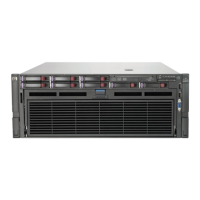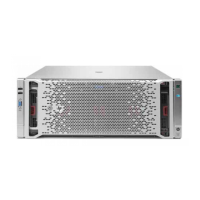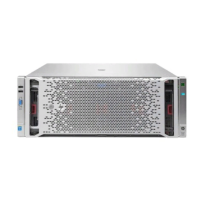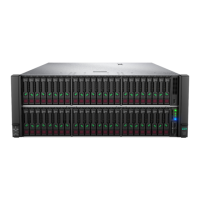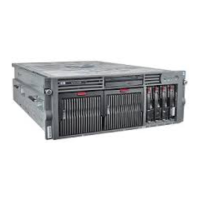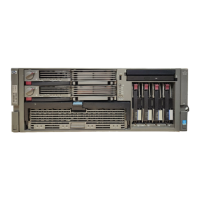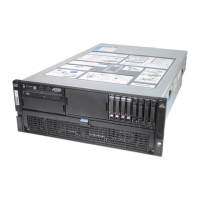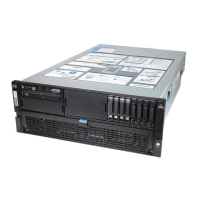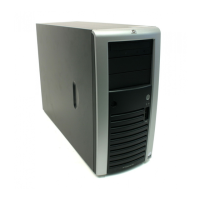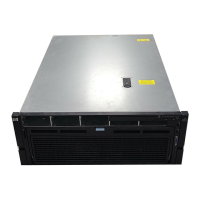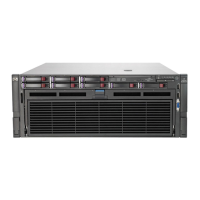Diagnostic tools 69
IMPORTANT: Processor socket 1 and PPM slot 1 must be populated at all times or the server does not
function properly.
• PPMs ("Removing a PPM" on page 35), except the PPM installed in slot 1
• DIMMs ("Removing DIMMs" on page 63), except the first bank
• Hard drives ("Removing a hot-plug SAS hard drive" on page 51)
• Peripheral devices
2. Reseat the processor in socket 1.
3. Reseat the remaining processors, rebooting after each installation to identify any failed processors.
IMPORTANT: Populate the processors in the following order: 1, 2, 4, 3.
IMPORTANT: Always install a PPM when you install a processor. The system fails to boot if the PPM is
missing.
4. Replace the processor in socket 1.
5. Replace the processor board, if applicable.
6. Replace the system board.
IMPORTANT: If replacing the system board or clearing NVRAM, you must re-enter the server serial number
through RBSU ("Re-entering the server serial number and product ID" on page 45).
Memory-related port 85 codes
Memory-related port 85 codes display in the format 4xh.
IMPORTANT: Reboot the server after completing each numbered step. If the error condition continues,
proceed with the next step.
To troubleshoot memory-related error codes:
1. Check the memory LEDs ("Memory board components and LEDs" on page 74) for any identified
errors or failed DIMMs, and take corrective action.
2. Bring the server to base configuration by removing all components that are not required by the
server to complete POST. This process can include removing all:
• Expansion boards ("Removing a non-hot-plug expansion board" on page 38, "Removing a PCI-X
Hot Plug expansion board" on page 40)
• Processors ("Removing a processor or processor blank" on page 32), except the processor
installed in socket 1
IMPORTANT: Processor socket 1 and PPM slot 1 must be populated at all times or the server does not
function properly.
• PPMs ("Removing a PPM" on page 35), except the PPM installed in slot 1
• DIMMs ("Removing DIMMs" on page 63), except the first bank
• Hard drives ("Removing a hot-plug SAS hard drive" on page 51)
• Peripheral devices
3. Reseat the remaining memory boards, rebooting after each installation to isolate any failed memory
boards, if applicable.
4. Replace the DIMMs with a remaining bank of memory.
5. Replace the memory board, if applicable.
6. Replace the system board.

